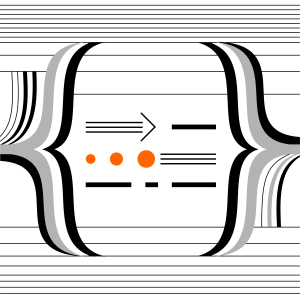Part 2. ABB — A Global Force in Industrial Automation and Electrification
ABB — A Global Force in Industrial Automation and Electrification
In the world of industrial technology, few names resonate with engineers and decision-makers as strongly as ABB. With roots going back over 130 years, ABB (Asea Brown Boveri) has emerged as a key player in electrification, robotics, motion, and automation technologies. Unlike some rivals that grew through sheer size, ABB carved its place by staying relentlessly focused on where industry meets efficiency, and where software meets machines.
Heritage with a High-Voltage Legacy
ABB was formed in 1988 through the merger of two venerable European giants: Sweden's ASEA (founded in 1883) and Switzerland's Brown, Boveri & Cie (founded in 1891). Both had rich histories in electrical engineering, power generation, and industrial electrification.
The merger created a new kind of global industrial company — decentralized in structure but unified in purpose: to build smarter, more efficient, and more connected electrical systems. This ethos still defines ABB’s culture today.
Evolution into Automation
ABB's transformation into a leader in industrial automation began in earnest during the 1990s and early 2000s. It developed and expanded its capabilities in control systems, electric drives, and later, robotics.
In 2018, ABB made a landmark move by acquiring GE Industrial Solutions, strengthening its foothold in the electrification space, particularly in North America. Two years later, ABB sold off its Power Grids business to Hitachi, a move that allowed it to concentrate further on automation, robotics, and smart electrification.
Today, ABB is structured around four core business areas:
-
Electrification
-
Motion
-
Process Automation
-
Robotics & Discrete Automation
Where Hardware Meets Intelligence
ABB isn’t just building physical systems. It’s embedding intelligence into everything it touches. ABB Ability™ is the company’s digital platform, offering software, analytics, and remote services that enhance the performance of physical infrastructure.
From programmable logic controllers (PLCs) and distributed control systems (DCS), to variable-speed drives, servo motors, and power management tools, ABB’s portfolio is a digital-physical hybrid designed to boost uptime, efficiency, and sustainability.
Their robots are used everywhere from car factories to food packaging lines. Their drives control pumps in water utilities and compressors in chemical plants. ABB's electrical panels manage power flow across smart buildings and microgrids. This wide applicability is what makes ABB essential in over 100 countries.
Advanced Solutions for Marine and Offshore Industries
ABB is also a major technology partner in the global maritime sector. Its marine solutions include hybrid and fully electric propulsion systems, energy storage, and automation tools tailored for ships and offshore platforms.
ABB's Azipod® propulsion technology, which combines electric drive with steerable pod-mounted propellers, has become a standard for icebreakers, cruise ships, and ferries due to its efficiency and maneuverability.
The company offers:
-
Integrated power and propulsion systems
-
Shipboard energy management and battery solutions
-
Remote diagnostics and digital fleet optimization tools
-
Shore-to-ship power infrastructure
Through these innovations, ABB helps vessel operators lower fuel consumption, cut emissions, and improve operational reliability on open seas and at port.
Focus on Sustainability and Efficiency
ABB’s modern strategy isn’t just about growth — it's about relevance in a world of resource constraints. With rising energy prices and environmental regulation, industrial customers are demanding more efficient systems.
ABB responds with energy-saving motors, electrified transportation systems, and advanced energy management platforms. Their EV charging infrastructure is now deployed globally, and they’ve become a major player in e-mobility, smart homes, and grid integration.
From offshore platforms to urban substations, ABB is building infrastructure that doesn’t just work — it learns and adapts.
A Global Footprint with Local Expertise
Despite being headquartered in Zurich, ABB operates like a truly global company. It employs more than 100,000 people, runs thousands of projects worldwide, and has manufacturing and R&D sites in every industrialized region.
The company’s strength lies in combining global scale with local responsiveness. Whether it's deploying an advanced automation system in a Norwegian refinery or supporting electric bus infrastructure in India, ABB customizes its solutions for regional needs and regulations.
What Sets ABB Apart
-
Legacy + Agility: With over a century of industrial know-how, ABB still evolves quickly, pivoting to new technologies without being slowed by its size.
-
Integrated Intelligence: ABB Ability connects thousands of devices and assets, enabling real-time data flows and decision-making.
-
Electrification Expertise: From substations to EV chargers, ABB covers the full spectrum of modern power infrastructure.
-
Global Trust: A supplier of choice for governments, OEMs, utilities, and manufacturers alike.
Looking Forward
ABB continues to align itself with the megatrends shaping the future of industry: electrification, digitalization, automation, and sustainability. As AI and machine learning become standard in industrial control systems, ABB is well-positioned to lead with hybrid solutions that combine precision engineering with software-driven adaptability.
From robot arms to grid controllers, ABB is wiring up the future — efficiently, intelligently, and sustainably.





